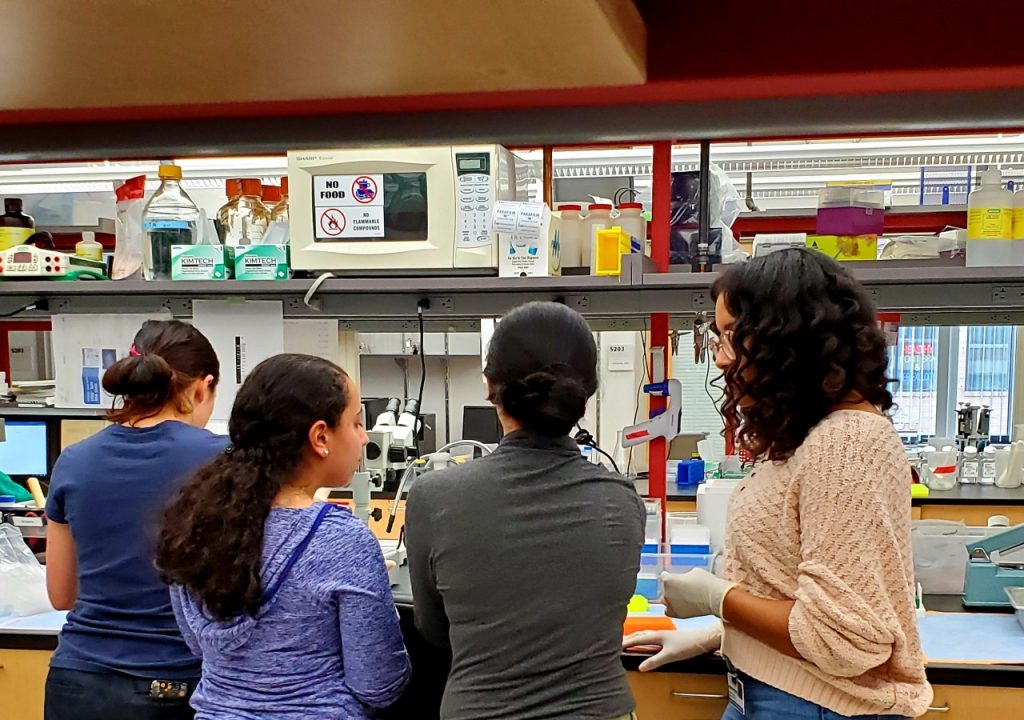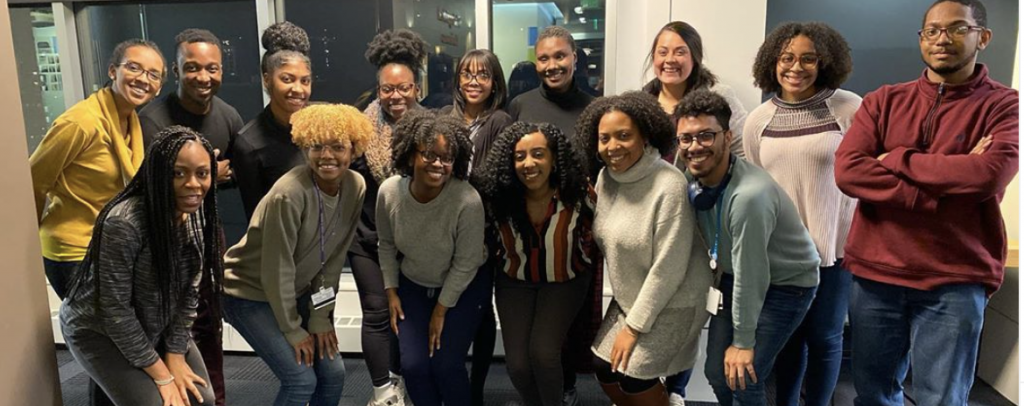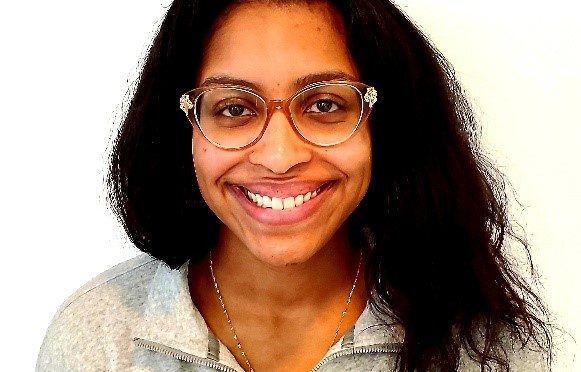Humans of Tufts Boston, 15 Oct 2020
Najah Walton, Neuroscience, Second-year Ph.D. Student: “The power of the mind is not a joke!”
JH: How did you get started in science and what were you doing before graduate school?
NW: I’ve always had a fascination with science as an extension of trying to learn more about the world around us. In elementary school I spent a lot of time with my grandma who lives in a rural part of Massachusetts and she always encouraged my siblings and me to get outside and appreciate nature. At the time I was a mini-lepidopterist, but when her sister was diagnosed with ALS my interest in the biomedical field became more of my focus.
As a first-generation student I had no idea what “wet lab” was or the prospect of getting a PhD. Luckily, I was fortunate enough to have friends working in research labs that introduced me to bench research as well as science mentors that inspired me to pursue science on a deeper level. One of my friends that was already doing research encouraged me to apply to the U54 Program which was a collaborative summer research training program between UMass Boston, Dana Farber Cancer Institute and the Harvard Cancer Center. I got to work on a public health outreach project aimed at increasing healthy lifestyle choices in faith-based organizations in the Boston area, as well as increasing the inclusivity of underrepresented individuals in biobanking. By the end of the summer I was captivated by research and wanted to continue pursuing research in conjunction with the clinical work that I was doing as a nursing student. To my benefit, one of the PIs that was on the grant for the summer program, Dr. Tiffany Donaldson, offered me a position working in her Neuroscience lab at UMass, where I started off studying a potential therapy for a birthing complication known as hypoxic ischemic brain injury.
When I graduated from UMass I received my license to practice as an RN but I chose to pursue a neuroscience graduate degree to continue the exciting work that I was doing as a research technician in the Maguire lab at Tufts. Dr. Maguire’s lab is now the lab where I will be working on my thesis and I’m looking forward to using my training to one day treat patients with neuropsychiatric disorders.

JH: What drew you to neuroscience?
NW: “The power of the mind is not a joke!” (Quote from world-renowned philosopher Drake Aubrey Graham.) The brain literally controls every aspect of our beings: how we think, how we move, how we breathe, how we laugh, how we love, how we manage illnesses, and how we help those around us. Seeing how devastating both neurodegenerative and neuropsychiatric diseases can be for individuals drew me to want to know more about the brain and how scientists may be able to combat these diseases with their discoveries.
JH: Have you been following any fascinating new scientific developments (in or out of your field)?
NW: In quarantine it’s been hard not to follow the news about the coronavirus vaccine (s/o Dr. Kizzmekia Corbet!). Dr. Corbet has been leading the NIH’s Vaccine Research Center in its push to develop a vaccine for coronavirus. Once the sequence for the virus was published, she and her team moved from vaccine development to a Phase 1 clinical trial…in just 66 days! To say it in plain terms she is a FORCE of nature and a true inspiration for all pursuing science careers.

JH: What do you like to do outside of lab? (This is a great place to plug BSA and I would love love love to link to a website or social media account if you have one!)
NW: Outside of lab I am currently co-president for Tufts Black Student Alliance (follow us on Instagram @tufts_BSA)! The Black Student Alliance was founded serendipitously as myself, Udoka, and several of our board members met by passing each other in the hallways or eating lunch in similar locations in the Biomedical Sciences Building. Udoka and I went to undergrad together and benefitted greatly from the community that was offered at UMass Boston and hoped that the same community could be formed at Tufts to ensure graduate school was just as fruitful. Since Black biomedical graduate students account for less than 10% of the STEM graduate student body it made more sense to create a community that spanned all of the health sciences campus to ensure that all Black students from each of the graduate programs were represented and could have a place of refuge/support during their time at Tufts.
I also host science workshops for youth in the Greater Boston area through Bethel Institute for Social Justice.
JH: Are you taking up any new hobbies during COVID times?
NW: Not necessarily a new hobby but my dogs definitely received a lot more attention in quarantine. We’ve had more time for long walks and they love getting off leash and going for hikes.
Connect with Najah on LinkedIn:
https://www.linkedin.com/in/najah-walton/



